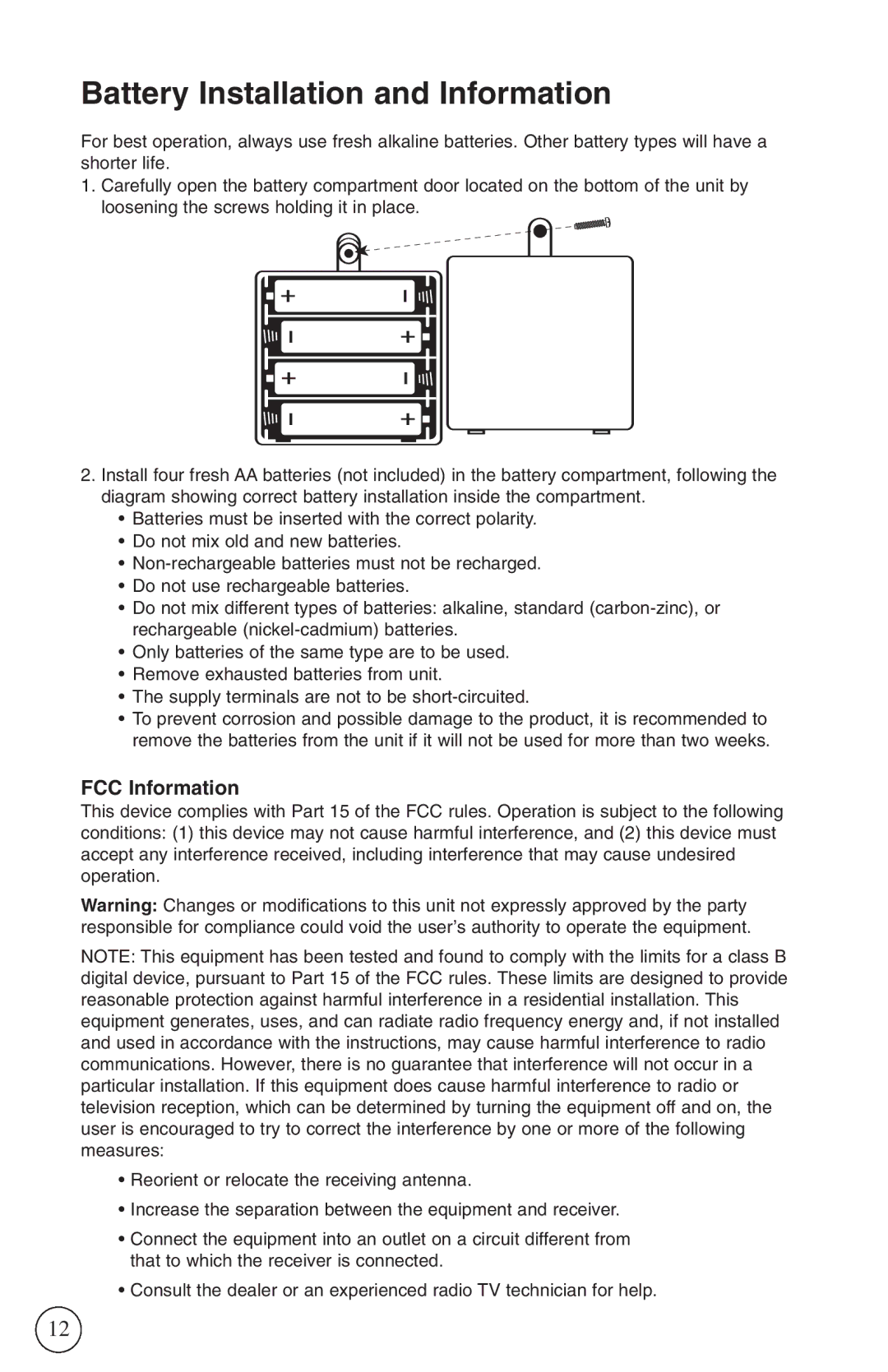
Battery Installation and Information
For best operation, always use fresh alkaline batteries. Other battery types will have a shorter life.
1.Carefully open the battery compartment door located on the bottom of the unit by loosening the screws holding it in place.
2.Install four fresh AA batteries (not included) in the battery compartment, following the diagram showing correct battery installation inside the compartment.
•Batteries must be inserted with the correct polarity.
•Do not mix old and new batteries.
•
•Do not use rechargeable batteries.
•Do not mix different types of batteries: alkaline, standard
•Only batteries of the same type are to be used.
•Remove exhausted batteries from unit.
•The supply terminals are not to be
•To prevent corrosion and possible damage to the product, it is recommended to remove the batteries from the unit if it will not be used for more than two weeks.
FCC Information
This device complies with Part 15 of the FCC rules. Operation is subject to the following conditions: (1) this device may not cause harmful interference, and (2) this device must accept any interference received, including interference that may cause undesired operation.
Warning: Changes or modifications to this unit not expressly approved by the party responsible for compliance could void the user’s authority to operate the equipment.
NOTE: This equipment has been tested and found to comply with the limits for a class B digital device, pursuant to Part 15 of the FCC rules. These limits are designed to provide reasonable protection against harmful interference in a residential installation. This equipment generates, uses, and can radiate radio frequency energy and, if not installed and used in accordance with the instructions, may cause harmful interference to radio communications. However, there is no guarantee that interference will not occur in a particular installation. If this equipment does cause harmful interference to radio or television reception, which can be determined by turning the equipment off and on, the user is encouraged to try to correct the interference by one or more of the following measures:
•Reorient or relocate the receiving antenna.
•Increase the separation between the equipment and receiver.
•Connect the equipment into an outlet on a circuit different from that to which the receiver is connected.
•Consult the dealer or an experienced radio TV technician for help.
12
